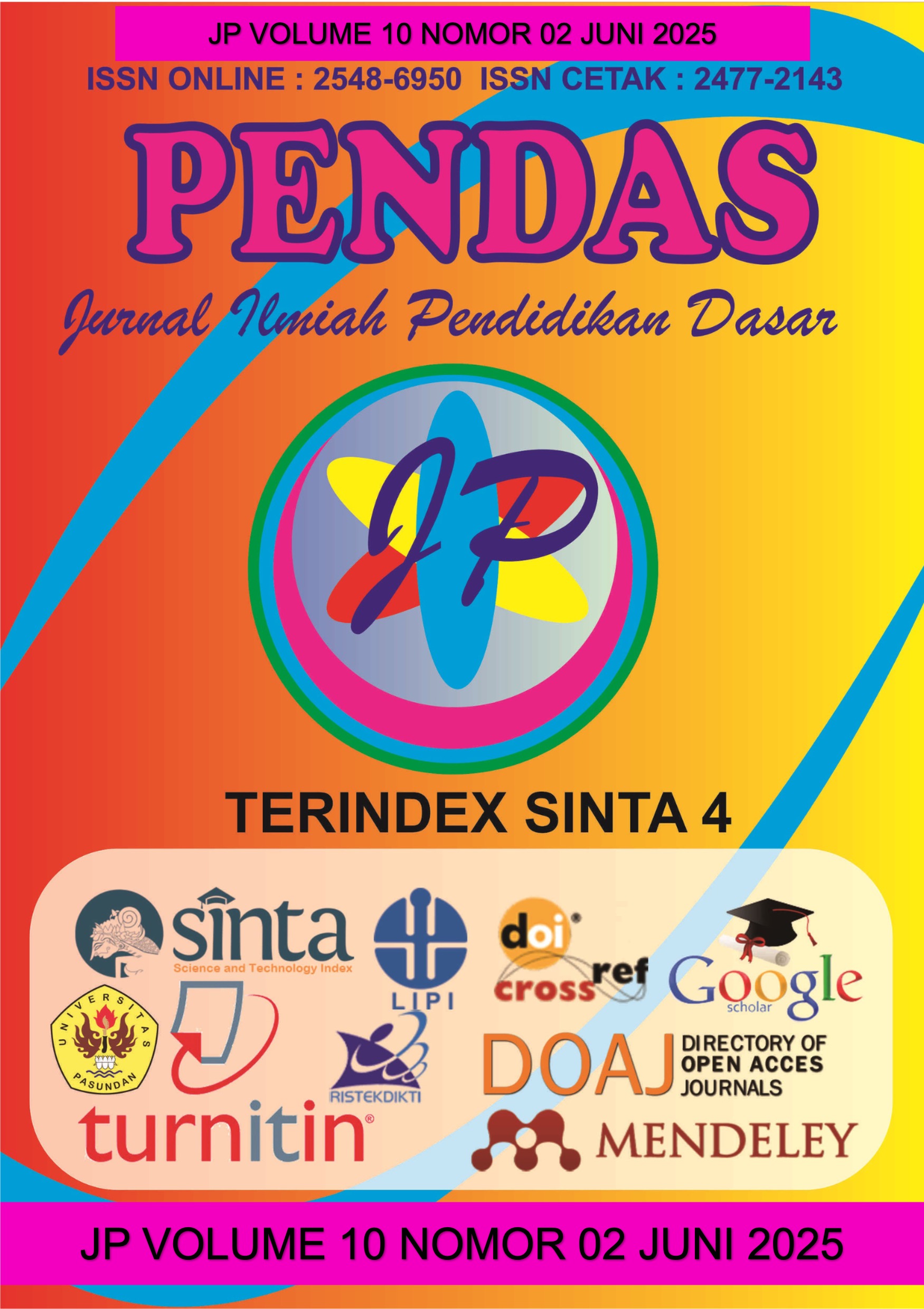Paradigma Interpretif dan Pendekatan Kualitatif Dalam Pendidikan Matematika
DOI:
https://doi.org/10.23969/jp.v10i02.26168Keywords:
interpretive paradigm, qualitative approach, mathematics educationAbstract
Contemporary approaches to mathematics education play a vital role not only in assessing learning outcomes but also in uncovering the subjective meanings embedded in students’ learning processes. The interpretive paradigm provides a conceptual framework that emphasizes understanding social constructions, personal meanings, and the unique experiences of learners. This paradigm underpins qualitative research in education, particularly when the focus is on in-depth exploration of how students interpret and internalize mathematical concepts. This article aims to review recent literature that applies the interpretive paradigm within the field of mathematics education. Findings indicate that this approach is effective in revealing students’ perceptions of mathematics, their learning strategies, and the emotional and social challenges they encounter throughout the learning process. A literature review of publications from the past five years reveals that the interpretive paradigm enables researchers to gain deeper insights into students’ cognitive and affective domains areas often overlooked by quantitative methods. Predominant methodologies such as in-depth interviews, participatory observation, narrative reflection, and case studies facilitate a holistic and contextualized understanding of learning experiences. Furthermore, this paradigm repositions teachers not merely as transmitters of content, but as facilitators who are attuned to the social, cultural, and psychological backgrounds of their students. The findings from this review offer significant implications for the development of inclusive curricula, reflective and personalized instructional strategies, and more humane, context-sensitive assessment models. In this regard, the interpretive paradigm contributes to shaping a mathematics education system that is more empathetic, relevant, and meaningful for students from diverse backgrounds and with varied learning needs in the modern educational landscape.
Downloads
References
Charmaz, K. (2021). Constructing grounded theory (3rd ed.). SAGE Publications
Creswell, J. W., & Poth, C. N. (2021). Qualitative inquiry and research design: Choosing among five approaches (4th ed.). Thousand Oaks, CA: SAGE Publications
Denzin, N. K., & Lincoln, Y. S. (Eds.). (2023). The SAGE handbook of qualitative research (6th ed.). Thousand Oaks, CA: SAGE Publications
Flick, U. (2021). An introduction to qualitative research (7th ed.). SAGE Publications
Given, L. M. (Ed.). (2020). The SAGE encyclopedia of qualitative research methods (2nd ed.). SAGE Publications
Grant, M. R., & Lincoln, Y. S. (2021). A conversation about rethinking criteria for qualitative and interpretive research: Quality as trustworthiness. Journal of Urban Mathematics Education, 14(2), 1–15. https://doi.org/10.21423/jume-v14i2a403
Hatch, J. A. (2020). Doing qualitative research in education settings (3rd ed.). SUNY Press
Jones, I., & Inglis, M. (2023). Interpretive approaches to understanding mathematics learning: The role of social interactions. Dalam M. Goos, G. Stillman, & C. Bennison (Eds.), Researching mathematics education in classroom settings: Advances and approaches (pp. 19–34). Springer. https://books.google.co.id/books?id=davOEAAAQBAJ
Lerman, S. (2020). Researching mathematics classrooms: An interpretive perspective. ZDM–Mathematics Education, 52(3), 457–470. https://doi.org/10.1017/CBO9780511720406
Maxwell, J. A. (2022). Qualitative research design: An interactive approach (4th ed.). SAGE Publications
Merriam, S. B. (2021). Qualitative research in practice: Examples for discussion and analysis (2nd ed.). Jossey-Bass
Merriam, S. B., & Tisdell, E. J. (2022). Qualitative research: A guide to design and implementation (4th ed.). Jossey-Bass
Müller, D. (2025). The ethical turn in mathematics education. arXiv preprint. https://arxiv.org/abs/2503.23454
Müller, D. (2025). Towards a critical pragmatic philosophy of sustainable mathematics education. arXiv preprint. https://arxiv.org/abs/2504.17149
Neuman, W. L. (2020). Social research methods: Qualitative and quantitative approaches (8th ed.). Boston, MA: Pearson
Patton, M. Q. (2023). Qualitative research & evaluation methods (5th ed.). SAGE Publications
Rubin, H. J., & Rubin, I. S. (2021). Qualitative interviewing: The art of hearing data (4th ed.). SAGE Publications
Saldana, J. (2021). The coding manual for qualitative researchers (4th ed.). SAGE Publications
Silverman, D. (2019). Interpreting qualitative data (6th ed.). London, UK: SAGE Publications
Tracy, S. J. (2020). Qualitative research methods: Collecting evidence, crafting analysis, communicating impact (2nd ed.). Wiley-Blackwell
Willis, J. W. (2020). Foundations of qualitative research: Interpretive and critical approaches. Thousand Oaks, CA: SAGE Publications 255-262.
Downloads
Published
Issue
Section
License
Copyright (c) 2025 Pendas : Jurnal Ilmiah Pendidikan Dasar

This work is licensed under a Creative Commons Attribution 4.0 International License.














































